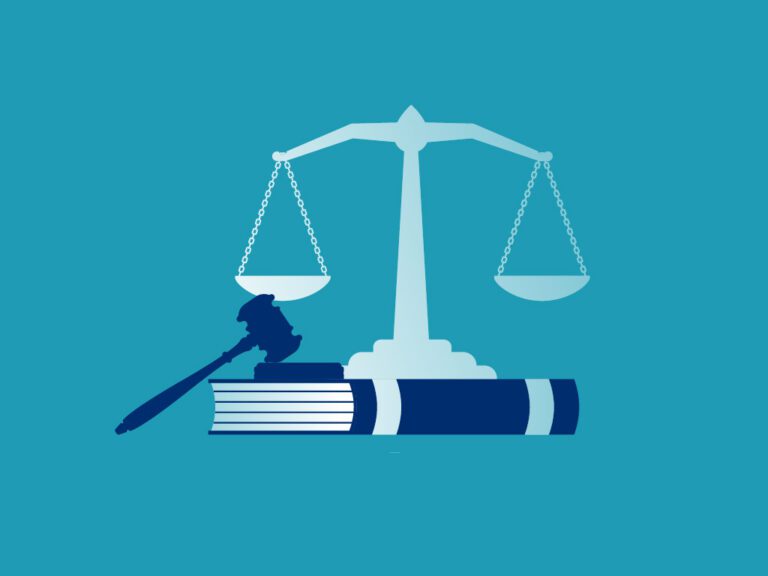What Will Overturning The Chevron Precedent Mean For Securities Regulatory Initiatives?
By Michael A. Gold
August 14, 2024

Michael A. Gold, Partner and Co-Chair of Saul Ewing LLP’s Corporate Practice, assists clients in a wide variety of industries in corporate and transactional matters. Gold has extensive experience with public securities markets and securities regulatory matters, particularly in the M&A, corporate governance and general disclosure and compliance areas.
This story originally appeared in Today’s General Counsel.
What Will Overturning The Chevron Precedent Mean For Securities Regulatory Initiatives?
The Supreme Court’s opinion in Loper Bright Enterprises vs. Raimondo, explicitly overturning the Chevron precedent, which stood for forty years, is a fundamental change in administrative law and will have a profound effect on judicial review of future and pending securities rules.
By changing the scope of judicial review from deference to an agency’s interpretations to a de novo review based on statutory interpretation, overturning the Chevron precedent injects significant uncertainty into which agency rules will survive and which rules courts will strike down.
Likely Effects
More and Extended Litigation: Loper Bright will result in increased litigation over administrative decisions. The Chevron era was characterized by litigants seeking a judicial remedy for perceived injustices caused by agency determinations.
However, where an agency’s interpretation is deemed worthy of deference, litigants were less incentivized to take their grievances to the courts. Where the courts will be required to review such decisions de novo, it gives these litigants a new and potentially more sympathetic forum to seek redress.
Moreover, since courts will still likely only be confronted with these issues after the agency has done its own extensive work on the issue, and now the trial court needs to establish its own de novo record, the timeline for settling these issues will extend significantly.
Slower Congressional and Administrative Actions: Loper Bright will also further slow both the legislative process at Congress as well as decision-making at agencies. The legislative process is already a long and arduous task. The process does not lend itself to filling in every hole and anticipating every potential ambiguity with a bill, with Congress often seeming content to leave those interpretations to the “experts” at the agencies.
This calculus might change if Congress knows the courts will be filling in those gaps. Similarly at the agencies, pressure will increase to establish the bona fides of any rule. More care in legislation and rulemaking may be a social good but will further delay providing guidance to businesses on what the rules and laws are in evolving areas, such as climate change regulation, employment law, cryptocurrency, and artificial intelligence, to name a few.
Industry Uncertainty: Loper Bright will reduce an industry’s ability to rely on agency pronouncements. Agencies generally interpret their statutes fairly consistently. Where different courts will review agency decisions without deference to administrative expertise, there is likely to be more variance in outcomes.
Planning by commercial interests will be complicated by the resulting uncertainty as to future regulatory requirements and the increase in time to finalize rules. Regulated industries could face significant disruptions as litigants force the courts to evaluate regulations. This will in turn increase compliance costs.
Recent SEC Initiatives
Most immediately, three SEC priorities will be affected by Loper Bright’s overturning the Chevron precedent:
Climate Change Disclosure Rules: The SEC climate change disclosure rules, adopted by the SEC earlier this year, have faced numerous lawsuits. See State of Iowa vs. SEC in the Eight Circuit. The SEC has stayed the rules pending the outcomes of these suits.
Opponents have argued the rules are “arbitrary and capricious,” violate the Administrative Procedures Act, and are not within the SEC’s purview. Without the Chevron deference, those arguments, coupled with the Supreme Court’s “major questions doctrine” articulated in West Virginia v. EPA, reduce the chance the climate disclosure rules will survive judicial review.
Private Fund Adviser Rules: The SEC recently adopted rules to regulate private investment funds and sponsors. In June, the Fifth Circuit vacated these rules, holding that the SEC exceeded its authority. Loper Bright eliminates the SEC’s ability to argue the Chevron doctrine on appeal.
Cryptocurrency: The SEC has been actively considering the appropriate regulatory framework for cryptocurrency, taking the position that many tokens and other forms of cryptocurrency meet the Howey test and are securities.
That position has been the subject of much debate and, after Loper Bright, the courts may be a friendlier audience for arguments by opponents that the SEC’s reliance on Howey is misplaced and the SEC lacks authority in this area. The overall effect will be a delay in the crypto industry getting reliable guidance as to what the “rules of the road” are for their business.
Get the free newsletter
Subscribe for news, insights and thought leadership curated for the law firm audience.




